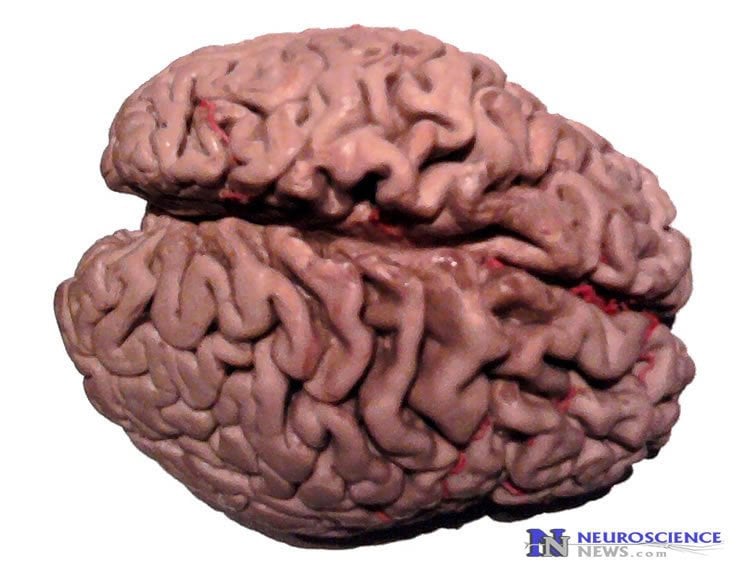A new study jointly led by King’s College London and the University of Southampton has found a link between gum disease and greater rates of cognitive decline in people with early stages of Alzheimer’s Disease.
Periodontitis or gum disease is common in older people and may become more common in Alzheimer’s disease because of a reduced ability to take care of oral hygiene as the disease progresses. Higher levels of antibodies to periodontal bacteria are associated with an increase in levels of inflammatory molecules elsewhere in the body, which in turn has been linked to greater rates of cognitive decline in Alzheimer’s disease in previous studies.
The latest study, published in the journal PLOS ONE, set out to determine whether periodontitis or gum disease is associated with increased dementia severity and subsequent greater progression of cognitive decline in people with Alzheimer’s disease.
In the observational study, 59 participants with mild to moderate Alzheimer’s Disease were cognitively assessed and a blood sample was taken to measure inflammatory markers in their blood. Participants’ dental health was assessed by a dental hygienist who was blind to cognitive outcomes. The majority of participants (52) were followed-up at six months when all assessments were repeated.
The presence of gum disease at baseline was associated with a six-fold increase in the rate of cognitive decline in participants over the six-month follow-up period of the study. Periodontitis at baseline was also associated with a relative increase in the pro-inflammatory state over the six-month follow-up period. The authors conclude that gum disease is associated with an increase in cognitive decline in Alzheimer’s Disease, possibly via mechanisms linked to the body’s inflammatory response.
Limitations of the study included the small number of participants; the authors advise that the study should be replicated ideally with a larger cohort. The precise mechanisms by which gum disease may be linked to cognitive decline are not fully clear and other factors might also play a part in the decline seen in participants’ cognition alongside their oral health.
However, growing evidence from a number of studies links the body’s inflammatory response to increased rates of cognitive decline, suggesting that it would be worth exploring whether the treatment of gum disease might also benefit the treatment of dementia and Alzheimer’s Disease.
Professor Clive Holmes, senior author from the University of Southampton, says: “These are very interesting results which build on previous work we have done that shows that chronic inflammatory conditions have a detrimental effect on disease progression in people with Alzheimer’s disease. Our study was small and lasted for six months so further trials need to be carried out to develop these results. However, if there is a direct relationship between periodontitis and cognitive decline, as this current study suggests, then treatment of gum disease might be a possible treatment option for Alzheimer’s.”
Dr Mark Ide, first author from the Dental Institute at King’s College London says: “Gum disease is widespread in the UK and US, and in older age groups is thought to be a major cause of tooth loss. In the UK in 2009, around 80% of adults over 55 had evidence of gum disease, whilst 40% of adults aged over 65-74 (and 60% of those aged over 75) had less than 21 of their original 32 teeth, with half of them reporting gum disease before they lost teeth.

“A number of studies have shown that having few teeth, possibly as a consequence of earlier gum disease, is associated with a greater risk of developing dementia. We also believe, based on various research findings, that the presence of teeth with active gum disease results in higher body-wide levels of the sorts of inflammatory molecules which have also been associated with an elevated risk of other outcomes such as cognitive decline or cardiovascular disease. Research has suggested that effective gum treatment can reduce the levels of these molecules closer to that seen in a healthy state.
“Previous studies have also shown that patients with Alzheimer’s Disease have poorer dental health than others of similar age and that the more severe the dementia the worse the dental health, most likely reflecting greater difficulties with taking care of oneself as dementia becomes more severe.”
Funding: The research was funded by The Dunhill Medical Trust.
Source: Jenny Gimpel – King’s College London
Image Source: The image is in the public domain.
Original Research: Full open access research for “Periodontitis and Cognitive Decline in Alzheimer’s Disease” by Mark Ide, Marina Harris, Annette Stevens, Rebecca Sussams, Viv Hopkins, David Culliford, James Fuller, Paul Ibbett, Rachel Raybould, Rhodri Thomas, Ursula Puenter, Jessica Teeling, V. Hugh Perry, and Clive Holmes in PLOS ONE. Published online March 10 2016 doi:10.1371/journal.pone.0151081
Abstract
Periodontitis and Cognitive Decline in Alzheimer’s Disease
Periodontitis is common in the elderly and may become more common in Alzheimer’s disease because of a reduced ability to take care of oral hygiene as the disease progresses. Elevated antibodies to periodontal bacteria are associated with an increased systemic pro-inflammatory state. Elsewhere raised serum pro-inflammatory cytokines have been associated with an increased rate of cognitive decline in Alzheimer’s disease. We hypothesized that periodontitis would be associated with increased dementia severity and a more rapid cognitive decline in Alzheimer’s disease. We aimed to determine if periodontitis in Alzheimer’s disease is associated with both increased dementia severity and cognitive decline, and an increased systemic pro inflammatory state. In a six month observational cohort study 60 community dwelling participants with mild to moderate Alzheimer’s Disease were cognitively assessed and a blood sample taken for systemic inflammatory markers. Dental health was assessed by a dental hygienist, blind to cognitive outcomes. All assessments were repeated at six months. The presence of periodontitis at baseline was not related to baseline cognitive state but was associated with a six fold increase in the rate of cognitive decline as assessed by the ADAS-cog over a six month follow up period. Periodontitis at baseline was associated with a relative increase in the pro-inflammatory state over the six month follow up period. Our data showed that periodontitis is associated with an increase in cognitive decline in Alzheimer’s Disease, independent to baseline cognitive state, which may be mediated through effects on systemic inflammation.
“Periodontitis and Cognitive Decline in Alzheimer’s Disease” by Mark Ide, Marina Harris, Annette Stevens, Rebecca Sussams, Viv Hopkins, David Culliford, James Fuller, Paul Ibbett, Rachel Raybould, Rhodri Thomas, Ursula Puenter, Jessica Teeling, V. Hugh Perry, and Clive Holmes in PLOS ONE. Published online March 10 2016 doi:10.1371/journal.pone.0151081







